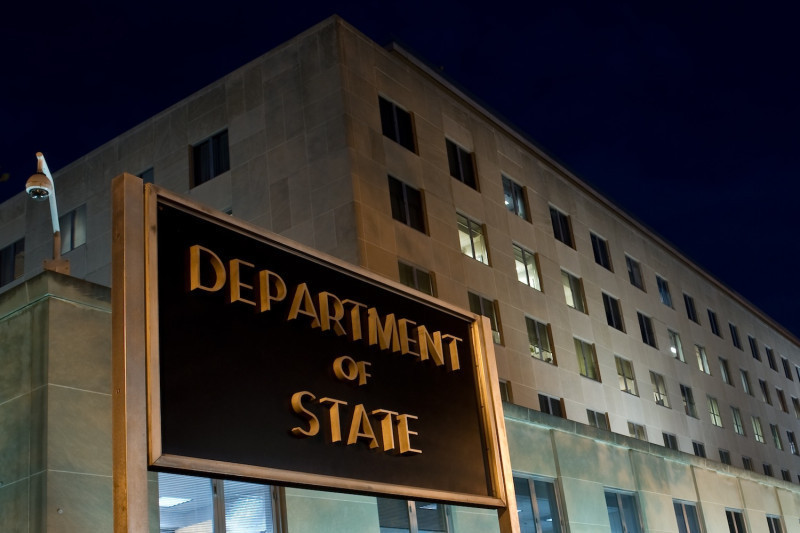 |
(Yonhap) |
The US State Department said it is willing to take a “flexible approach” on negotiations with North Korea, the Voice of America reported on Wednesday.
“We are willing to take a flexible approach to reach a balanced agreement on all the Singapore summit commitments,” a member of the US State Department spokesperson’s office was quoted as saying by the US broadcaster.
According to VOA, the official made the comments while explaining the department’s position on repeated criticism from Russia and China that Washington’s “maximum pressure” campaign on North Korea was unrealistic and not helping solve problems.
At their first summit in June 2018 in Singapore, US President Donald Trump and North Korean leader Kim Jong-un signed a joint statement in which the two countries agreed to commit to establishing new relations, build a lasting peace regime on the Korean Peninsula, work toward complete denuclearization of the Korean Peninsula and commit to recovering the remains of US soldiers in the North.
The State Department official did not elaborate on which areas the US would be flexible on, or what kind of actions by the North could lead to easing of sanctions, VOA said.
Top US officials have made similar remarks before.
Kelly Craft, US ambassador to the United Nations, said during a UN Security Council session in December last year that Washington is ready to be “flexible,” “take actions in parallel and “simultaneously take concrete steps” in North Korea’s denuclearization process.
In June last year, Stephen Biegun, then-US Special Representative for North Korea, said “both sides understand the need for a flexible approach.”
The State Department official also stressed the need for coordination with the US in South Korea’s efforts to improve bilateral ties with the North.
“The United States supports inter-Korean cooperation and coordinates with our ROK ally to ensure inter-Korean cooperation proceeds in lockstep with progress on denuclearization,” the official said, in regard to the Unification Ministry spokesman’s recent remarks that South Koreans’ individual tours to the North are not subject to consultations between Seoul and Washington.
The department had made the same comments last month when Foreign Minister Kang Kyung-wha said the Koreas could move ahead before US-North Korea talks proceed.
Meanwhile, the US Treasury Department said it will continue to focus on using “targeted financial measures” this year to deal with national security challenges including North Korea, Iran, Russia and Venezuela.
The department’s Office of Terrorism and Financial Intelligence said in its congressional budget justification report for the fiscal year 2021 that it has supported the US administration’s goal to achieve the final, fully verified denuclearization of North Korea by maintaining pressure on the country’s finances and economy.
To curb the North Korean threat, TFI said it deploys a variety of financial tools and authorities including sanctions, measures for anti-money laundering and countering the financing of terrorism.
TFI said in the report that it sanctioned more than 20 individuals, entities and vessels related to North Korea in the 2019.
The US Treasury has set aside an annual budget of $172.75 million for TFI in 2021, up 1.79 percent from the previous year.
By Kim So-hyun (
sophie@heraldcorp.com)








![[Today’s K-pop] Blackpink’s Jennie, Lisa invited to Coachella as solo acts](http://res.heraldm.com/phpwas/restmb_idxmake.php?idx=644&simg=/content/image/2024/11/21/20241121050099_0.jpg)